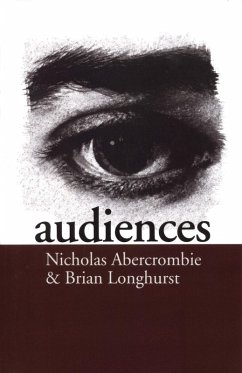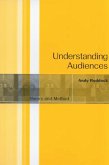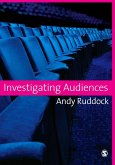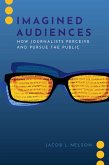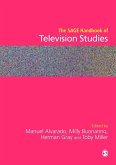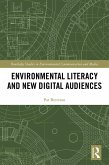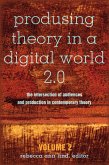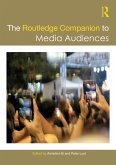`This book is worth reading for a number of reasons. It is the first introductory work of critical audience research that suggests how we can study the connection of media consumption in general with every day life, and it also goes beyond its competitors in showing how postmodern thinking can help us in the analysis of a "whole way of life"' - Journal of Communication
Audiences are problematic and the study of audiences has represented a key site of activity in the social sciences and humanities. Offering a timely review of the past 50 years of theoretical and methodological debate Audiences argues the case for a paradigmatic shift in audience research.
This shift, argue the authors, is necessitated by the emergence of the `diffused audience'. Audience experience can no longer be simply classified as `simple' or `mass', for in modern advanced capitalist societies, people are members of an audience all the time. Being a member of an audience is no longer an exceptional event, nor even an everyday event, rather it is constitutive of everyday life. This book offers an invaluable review of the literature and a new point of departure for audience research.
Audiences are problematic and the study of audiences has represented a key site of activity in the social sciences and humanities. Offering a timely review of the past 50 years of theoretical and methodological debate Audiences argues the case for a paradigmatic shift in audience research.
This shift, argue the authors, is necessitated by the emergence of the `diffused audience'. Audience experience can no longer be simply classified as `simple' or `mass', for in modern advanced capitalist societies, people are members of an audience all the time. Being a member of an audience is no longer an exceptional event, nor even an everyday event, rather it is constitutive of everyday life. This book offers an invaluable review of the literature and a new point of departure for audience research.
Dieser Download kann aus rechtlichen Gründen nur mit Rechnungsadresse in A, D ausgeliefert werden.
`From a theoretical point of view, they provide a valuable update on how recent debates within cultural studies should alter the direction of critical audience research.... The considerable breadth of subject matter covered in this book is organized logically and presented in extremely readable prose.... The authors also provide a valuable service in differentiating among audience activity.... This book is worth reading for a number of reasons. It is the first introductory work of critical audience research that suggests how we can study the connection of media consumption in general with every day life, and it also goes beyond its competitors in showing how postmodern thinking can help us in the analysis of a "whole way of life"' - Journal of Communication
`This book brings the study of the audience into the centre of the study of electronic mediation, and the study of electronic mediation into the centre of the study of society and culture. In so doing it captures something of the inescapable intensity of the media in the late twentieth century in ways which are both accessible and provocative. It should be widely read' - Roger Silverstone
`Timely and refreshing....the authors successfully assert is that to understand audiences both method and theory must take account of wider social processes and not to isolate media use from the complex rhythms, patterns and practices of everyday life. In locating audiences within this wider framework they have laid down a formidable challenge for future research' - Framework
`This book brings the study of the audience into the centre of the study of electronic mediation, and the study of electronic mediation into the centre of the study of society and culture. In so doing it captures something of the inescapable intensity of the media in the late twentieth century in ways which are both accessible and provocative. It should be widely read' - Roger Silverstone
`Timely and refreshing....the authors successfully assert is that to understand audiences both method and theory must take account of wider social processes and not to isolate media use from the complex rhythms, patterns and practices of everyday life. In locating audiences within this wider framework they have laid down a formidable challenge for future research' - Framework

